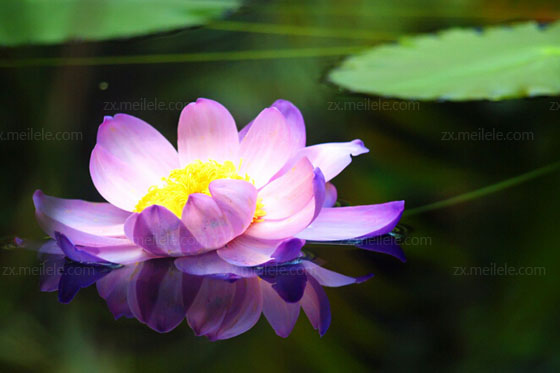A complete collection of planting methods of water lilies, grow a piece of your lotus pond moonlight
As we all know, there are unique representative plants in each season of the year, and the most typical plant in summer is lotus, among which water lily is one of the most popular plants. Lotus out of the mud and not stained, washed clear ripples and not demon, so through the ages breeding water lily is very, very many people. But how exactly are water lilies cultivated, and what is the cultivation method of water lilies? Let's take a look at the cultivation methods of water lily.

Water Lily
Water lily, scientific name Nymphaea L, is a perennial herbaceous aquatic plant belonging to the genus Nymphaea of the Nymphaeaceae family. The plants are widely distributed, and because they grow in ponds or lakes and other still water bodies, the plants are very beautiful, so they are often cultivated as ornamental plants in parks and loved by the masses. Usually, lily leaves are round or nearly round or oval, green on the front and purple on the back, very bright. The flowering period of water lily is from May to August in summer. When it blooms, the flowers are huge and rich in colors, including red, pink, blue, purple and white.

Water lily cultivation methods complete
1. Breeding method of water lily
At present, there are two main breeding methods for planting water lilies. One is sub-plant breeding, but sowing breeding, among which minute breeding is more common. The propagation of water lilies is generally carried out in March to April when the germination is strong in early spring. The roots of water lilies with full new buds are selected and cut into root segments of 8 to 10 cm long, and each root segment has at least one bud, and then planted. After planting, it is necessary to bask in the sun to inject water, and in summer, the water can be appropriately increased after the plants sprout. Sowing and breeding water lily is usually cultivated in pots from March to April in spring. The sowing temperature is 25 to 30 degrees, and the survival rate is also high.

2. Cultivation method of water lily
Plant growth requires sufficient nutrients, so when planting water lilies, it is advisable to choose a pond with fertile soil, and there is at least 30 cm of deep soil at the bottom of the pond, so that the survival rate of water lilies will be higher. At the same time, in order to grow water lilies better, strict control of moisture and temperature is also very important. At the beginning of growth, the petiole of the lily is still relatively short. At this time, the water should not be too much. The leaves of the plant need to be fully exposed to the air. The water temperature is higher. When it comes to the peak growth period, that is, summer, the water demand is the greatest, the temperature is high, and the plants grow smoothly.

Planting water lilies should also pay attention to the problem of timely topdressing. Although the water lily grows in the water, fertilization seems to have no effect, but in fact it is necessary, appropriate topdressing can not only promote the growth of water lily, but also will not pollute the water quality, so it is necessary. However, topdressing time to use toughness, good water absorption of the paper will be wrapped fertilizer, and in the package a few holes in order to release fertilizer. In addition, as a plant flower, water lily also has many pests and diseases, so it is necessary to do a variety of pest control work when planting to avoid the danger of pests and diseases of water lily.

Conclusion: Summer sunshine, blooming water lily is like a falling fairy general, let people happy at the same time, but also sent a trace of cool, let people feel very cool in the hot summer.
You may be interested.
Green radish breeding methods and precautions
Anthurium cultivation methods and precautions
Anthurium cultivation methods and precautions
- Prev

What is the flower language of carnations? Introduction to the language of carnations
What is the flower language of carnations? Introduction to the language of carnations
- Next

Summary of common problems in domestic cultivation of Xiandan flower | Culture method of Xiandan flower
Summary of common problems in domestic cultivation of Xiandan flower | Culture method of Xiandan flower
Related
- Wuhan Hospital Iron Tree Blooming Result Was Instantly Frightened by the Gardener Master
- Which variety of camellia is the most fragrant and best? Which one do you like best?
- What is the small blue coat, the breeding methods and matters needing attention of the succulent plant
- Dormancy time and maintenance management of succulent plants during dormancy
- Minas succulent how to raise, Minas succulent plant pictures
- What are the varieties of winter succulent plants
- How to raise succulent plants in twelve rolls? let's take a look at some experience of breeding twelve rolls.
- Attention should be paid to water control for succulent plants during dormant period (winter and summer)
- Watering experience of twelve rolls of succulent plants
- Techniques for fertilizing succulent plants. An article will let you know how to fertilize succulent plants.

